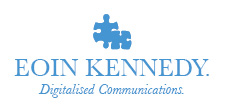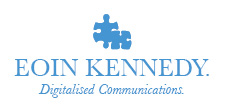Why are PR people sitting on the fence with Web 2.0?
I will be presenting at the Search Marketing World conference in Dublin in April on the experiences of integrating “traditional” campaigns into the online world. One of the areas I have been pondering has been the reluctance of PR companies to full engage in the great opportunities that exist with online opportunities such as facebook, bebo and areas like social bookmarking and SEO of press releases. Many companies risk missing the boat as advertising agencies suck up the budget.
Online PR, PR 2.0, Digital PR, EPR or whatever term people use has a lot of agencies scratching their heads and paying lip service. On one side PR companies are perfectly positioned. They generate large amounts of interesting content from photography, press releases, articles, presentations, speeches etc. Unfortunately much of this content lies dormant on a company’s servers once its been printed through traditional media. So why are they so slow? Here are some possible reasons:
1. Fear of technology.
Many PR people never really get beyond using word processors. Using audio and photo editing software needs new IT literacy skills and many do no invest. Although most software has become increasingly intuitive it still takes time to master rapidly evolving tools like blogs. Add the almost daily new applications that appear on facebook and you have a very different learning curve.
2. Exposure.
PR people are very comfortable with suppling content to journalists and even happier when the journalist uses their bi-line on the article. Not all are so happy when their names appear in print. Similarly we are happy to prep and push out spokespeople but less happy being on the front lines ourselves.
3. Feedback.
People rarely feedback on articles they read in the traditional media world. By the time they have found pen and paper, envelope, bought a stamp, the enthusiasm to reply has worn off. In addition written letters rarely get printed. Not so the blogging and social networking world. Instant and perhaps less thought out feedback is common. Many companies and PR people feel very uneasy about this.
4. Time.
Researching, monitoring and implementing online campaigns sinks a lot of hours. Few executives in PR companies sit idly at their desk and with pressure to record billable hours means that the value of online campaigns can be over looked and seen as unproductive use of time.
5. Age profile.
Most senior management in PR can be defined as digital emigrants at best. The emerging new class of younger PR excutives who have grown up in an exclusive online environment have very different skills and agility. Senior managers can feel very exposed and are sometimes negative about online PR as a result.
6. Networking.
Evening events and social events have always been the feeding ground for PR executives to hand out business cards and flaunt their expertise. Building online networks from Facebook to LinkedIn means spending equal amount of hours on a PC to ensure that you are connected to the new online influentials.
7. Information Overload.
I see on a daily basis busy PR executives struggling to even read the daily selection of newspapers. Add the countless blogs, twitter entries and flow of online news feeds and people stuggle to manage the information. Combine this with the huge number of user names and passwords and many just give up. Tools like FeedDemon help but are still underutilised.
8. Fear and Ignorance.
One of the most negative barriers to PR companies is the lack of understanding of the power of good online campaigns. Fear can be a double edge sword – for some it causes them to dismiss the opportunities but now that critical mass has been reached in terms of numbers online and the reliance on the search engines for finding information on companies, the fear is starting to drive action. With over 1 million registered Irish users of bebo and over 127,000 new Irish users on facebook in a 9 month period last year there is a growing feeling of an emerging tsumani of online users who will want their content presented in a different way than articles in the Irish Times.
9. Definitinon.
Traditional PR services differ hugely amongst communications companies. What one considers PR, others consider as promotion, hence the confusion in defining the job role of a public relations consultant. This gets even more confusing in the online world where the options are vast. In addition the parameters are being roughly draw up and are still vague at best. For example at a recent Ketchum Leadership conference I attended in London, one of the affiliates spoke about running campaigns on Facebook and the clear line between providing engaging content and infiltrating the community. Hiring online influentials to spread the word was seen as beyond acceptable behaviour.
The list of reasons for not fully engaging goes on but what is clear is that if PR companies do not invest in their capabilities that someone else will appear and eat their lunch. The traditional media has constricted and those who do not change will find themselves in a skrinking and competitive market.
Time will tell!!



1 Comment. Leave new
[…] media poses lots of challenges for PR people, some of which I covered in previous posts. One I see increasing in importance is the start stop nature of […]